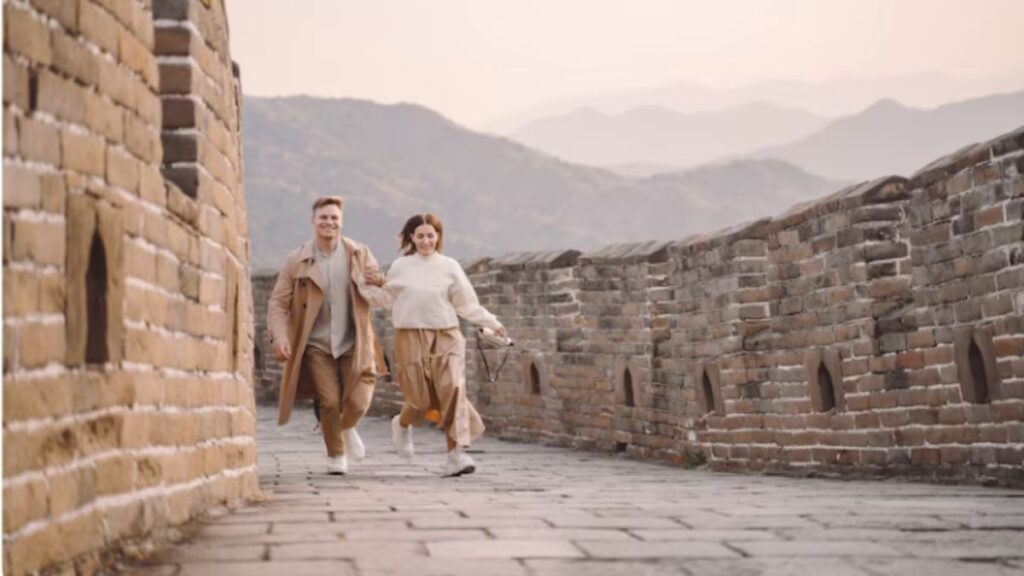Tonghou is a term that often leaves people puzzled. It whispers of mystery, history, and cultural nuance. This enigmatic word has woven itself into the very fabric of Chinese culture, yet its true meaning can sometimes seem elusive.
From ancient texts to modern conversations, Tonghou carries layers of significance. Its journey through time reflects not only linguistic evolution but also shifts in societal values and beliefs. As we delve deeper into this fascinating term, we’ll uncover its origins, how it has shaped Chinese culture over the centuries, and what it represents today.
Join us on this historical expedition as we explore Tonghou through the ages—an adventure filled with intrigue and insight into an essential aspect of China’s rich heritage.
The Origins of Tonghou
Tonghou traces its roots back to ancient Chinese philosophy and linguistics. The term has long fascinated scholars and historians alike. It encapsulates a unique blend of meaning that reflects the complexities of cultural identity.
In classical texts, Tonghou was often associated with concepts of harmony and balance. This connection likely stemmed from its use in various philosophical discussions regarding societal structure.
Linguistically, the origin of Tonghou can be dissected into components that reveal layers of interpretation. Each character holds significance beyond mere translation, offering insights into historical contexts.
Over time, it evolved through different dynasties, adapting to shifting political landscapes. From imperial courts to common folk gatherings, its usage transformed yet remained anchored in tradition.
The depth found within this single term illustrates how words carry legacies across generations. As language evolves, so too does our understanding of terms like Tonghou.
Evolution of Tonghou in Chinese Culture
Tonghou has undergone a fascinating transformation throughout Chinese history. Initially rooted in ancient practices, this term was often associated with traditional rituals and spiritual beliefs.
As dynasties rose and fell, its meaning evolved. In the Tang Dynasty, Tonghou began to intertwine with poetry and art. Scholars used it as a metaphor for complex emotions, enriching literary works.
During the Ming Dynasty, Tonghou became emblematic of social structures. It reflected societal hierarchies and family dynamics within communities.
In modern times, the concept of Tonghou has adapted further. Artists and writers now leverage its nuanced meanings to comment on contemporary issues like identity and belonging. This evolution showcases how language can reflect cultural shifts across time periods.
Today’s interpretations are not limited to historical contexts but also embrace personal experiences that resonate deeply with diverse audiences across China.
Cultural Significance of Tonghou
Tonghou holds a profound place in Chinese culture, weaving itself into the fabric of various traditions and practices. Its influence can be seen in art, literature, and even daily life.
Historically, Tonghou has been associated with communal gatherings. These events often celebrate unity and shared experiences among communities. It serves as a reminder of togetherness amidst life’s challenges.
In literature, characters embodying the essence of Tonghou inspire narratives that explore themes like resilience and hope. This term resonates deeply within poetic expressions that capture human emotions.
Moreover, modern interpretations of Tonghou reflect an evolving cultural narrative, adapting to contemporary values while still honoring its roots. The rich tapestry woven by this concept continues to enrich discussions around identity and heritage today.
Modern Usage of Tonghou
In today’s rapidly evolving world, the term Tonghou has found its way into various facets of modern life. It appears in social media discourse, where users explore its meanings and implications in contemporary contexts.
Young people often use Tonghou as a lens to connect with their roots while navigating modern identity crises. This blend of tradition and innovation resonates deeply within communities seeking authenticity amid globalization.
Moreover, art projects and literature continue to reinterpret Tonghou’s significance. Creatives weave the term into narratives that reflect societal changes and personal experiences, giving it new life in a digital age.
With advancements in technology, discussions around Tonghou are not just limited to cultural forums but extend to podcasts and online videos. These platforms allow for diverse interpretations and insights from around the globe.
As such, Tonghou remains an ever-evolving concept reflecting both historical depth and present-day relevance.
Controversies Surrounding Tonghou
Tonghou has stirred debate among scholars and enthusiasts alike. Its ambiguous roots ignite discussions about authenticity and cultural appropriation.
Some argue that the modern interpretations dilute its rich history. Critics claim this oversimplification risks losing the deeper meanings it once held in traditional contexts.
Additionally, various factions within Chinese society interpret Tonghou differently. These differing perspectives can lead to misunderstandings or misrepresentations of its significance.
Social media platforms have amplified these controversies, creating a space for passionate exchanges. Advocates defend Tonghou’s evolving nature while opponents call for a return to historical accuracy.
The complexities surrounding Tonghou reflect broader themes in cultural heritage debates today. As traditions evolve, so does the dialogue around them, leaving many questioning what should be preserved versus embraced.
Conclusion: Reflecting on the Impact and Legacy of Tonghou
The journey of Tonghou is a fascinating exploration of its rich history and cultural significance. From its ancient origins to its modern interpretations, this term has evolved alongside Chinese society. It embodies the complexities and intricacies that reflect broader themes in culture, philosophy, and art.
Tonghou serves as a reminder of how language can encapsulate deep meanings and narratives over time. Its presence in various forms—be it literature, folklore, or contemporary discussions—highlights the role that historical terms play in shaping identity.
As we navigate through the legacies left by such enigmatic expressions like Tonghou, we see not only their impact on past generations but also their potential to resonate with future ones. Understanding this term encourages us to delve deeper into our own cultural histories while appreciating the richness they add to our lives today. The story of Tonghou continues to unfold as it intertwines with personal experiences and collective memories across generations.






